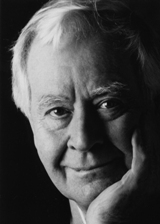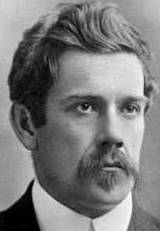Theater 2013-14: The lure of a different life links Raven trips to ‘Bountiful’ and beyond
 Tenth in a series of season previews: From Horton Foote to Tennesee Williams, the season’s playwrights at Raven Theatre confront the pangs of emptiness and longing.
Tenth in a series of season previews: From Horton Foote to Tennesee Williams, the season’s playwrights at Raven Theatre confront the pangs of emptiness and longing.
By Lawrence B. Johnson
From the season opener, Horton Foote’s “The Trip to Bountiful” to the finale with Tennessee Williams’s “The Vieux Carré,” the 2013-14 lineup of plays at Raven Theatre centers on what co-artistic director Michael Menendian calls “that little ache in our heart, the secret longing for a different life.”
 But the trick with season themes is not to get trapped in too narrow a channel, says Menendian: “You don’t want four plays that are essentially the same – the break-up of a family, the death of a family with variations. In our season, the central characters are either moving on to escape a world they’re from or wishing they were somewhere or someone else.”
But the trick with season themes is not to get trapped in too narrow a channel, says Menendian: “You don’t want four plays that are essentially the same – the break-up of a family, the death of a family with variations. In our season, the central characters are either moving on to escape a world they’re from or wishing they were somewhere or someone else.”
“The Trip to Bountiful” began as a television drama in 1953, with Lillian Gish as the wistful Carrie Watts, bent on returning to the home of her youth, and Eva Marie Saint as her accidental traveling companion (image above). In Williams’s overtly autobiographical “Vieux Carré,” an aspiring writer struggles with his uncertain career, poverty and homosexuality.
In John Millington Synge’s “The Playboy of the Western World,” third on Raven’s calendar, an Irish country lad walks into a pub bragging of a dreadful dead, fascinating the men folk and enticing the women. It is an American youth, from a good family, who may not be quite the fine fellow everyone assumes in Roberto Aguirre-Sacasa’s “Good Boys and True.”
“Longing for another life is a common urge in many of us, often driven by the desperate realization that our current lot in life is woefully missing the key ingredient for ultimate happiness,” says Menendian. “Each of these four shows reveals the aches and desires of those who wish for a better world.”
The 2013-14 season in brief:
 “The Trip to Bountiful” by Horton Foote (Sept. 17-Nov. 17): Long removed from her beloved native home in tiny (fictitious) Bountiful, TX, elderly Carrie Watts is forced to live with her hen-pecked son and resentful daughter-in-law in a cramped apartment in Houston. Though she makes regular attempts to escape, she’s always foiled. But Mrs. Watts is not a woman easily defeated. “Late in her life, Mrs. Watts is driven by this single need to get back to her childhood home, this remembered Shangri-la,” says Michael Menendian. “It’s really about the journey to this little town in the middle of nowhere, and what she finds when she gets there.” This is the 60th anniversary of “Bountiful’s” original staging on Broadway, where last season’s revival brought a Tony Award for best actress to 79-year-old Cicely Tyson in the role of Mrs. Watts. Returning in th epart for Raven will be Millie Hurley, who received a 2006 Jeff Award and an After Dark Award in the company’s production of “Dancing at Lughnasa.” Raven co-artistic director JoAnn Montemurro will direct.
“The Trip to Bountiful” by Horton Foote (Sept. 17-Nov. 17): Long removed from her beloved native home in tiny (fictitious) Bountiful, TX, elderly Carrie Watts is forced to live with her hen-pecked son and resentful daughter-in-law in a cramped apartment in Houston. Though she makes regular attempts to escape, she’s always foiled. But Mrs. Watts is not a woman easily defeated. “Late in her life, Mrs. Watts is driven by this single need to get back to her childhood home, this remembered Shangri-la,” says Michael Menendian. “It’s really about the journey to this little town in the middle of nowhere, and what she finds when she gets there.” This is the 60th anniversary of “Bountiful’s” original staging on Broadway, where last season’s revival brought a Tony Award for best actress to 79-year-old Cicely Tyson in the role of Mrs. Watts. Returning in th epart for Raven will be Millie Hurley, who received a 2006 Jeff Award and an After Dark Award in the company’s production of “Dancing at Lughnasa.” Raven co-artistic director JoAnn Montemurro will direct. “The Playboy of the Western World” by John Millington Synge (Feb. 4-April 5, 2014): When a handsome young stranger swaggers into a small pub in rural Ireland, telling grand tales and boasting of dark deeds, the townsmen praise his bravado and the ladies vie to win his affection. Then his real story comes to light. At its Dublin premiere in 1907, the play’s raw subject matter, language and depiction of sexually excited women incited a riot. Moral objections continued when the play was first staged in the U.S. “It’s like reading Shakespeare, the language is so lyrical,” says Menendian, the director, echoing a century of revised critical assessment. “This is a great human comedy. A young man comes in with talk of having killed his father. He’s from a farm 20 miles away, but in this pub he’s a stranger in a strange land, an exotic figure. One of the great challenges is managing the rural Irish dialect – to preserve the flavor but also to make sure the language is clearly understandable. There’s real humor under the sadness.”
“The Playboy of the Western World” by John Millington Synge (Feb. 4-April 5, 2014): When a handsome young stranger swaggers into a small pub in rural Ireland, telling grand tales and boasting of dark deeds, the townsmen praise his bravado and the ladies vie to win his affection. Then his real story comes to light. At its Dublin premiere in 1907, the play’s raw subject matter, language and depiction of sexually excited women incited a riot. Moral objections continued when the play was first staged in the U.S. “It’s like reading Shakespeare, the language is so lyrical,” says Menendian, the director, echoing a century of revised critical assessment. “This is a great human comedy. A young man comes in with talk of having killed his father. He’s from a farm 20 miles away, but in this pub he’s a stranger in a strange land, an exotic figure. One of the great challenges is managing the rural Irish dialect – to preserve the flavor but also to make sure the language is clearly understandable. There’s real humor under the sadness.” “Good Boys and True” by Roberto Aguirre-Sacasa (March 4-May 3, 2014): The 40-year-old Aguirre-Sacasa, whose credits include a rescue-rewrite of the troubled Broadway musical “Spiderman: Turn Off the Dark,” is a prolific author whose “Good Boys and True” had its premiere at Steppenwolf Theatre in 2008. The story turns about the uncertain identity of young man in a salacious video of a teenage couple that makes the rounds at St. Joseph’s Preparatory School for Boys. His face remains out of view, but he resembles the football team captain and the Ivy League-bound son of two doctors who repeatedly deny it’s him. “Good Boys and True” grapples with issues of social class and hints of sexual abuse and homosexuality, revealing ugly implications about how a culture of privilege reveals its dark side. “The central character is the classic all-American prep school star, on his way to an Ivy League school,” says Menendian, “and because of his upbringing, he feels that entitlement to satisfy his whims and desires. The core tragedy is not the downfall of the son, but of the family – the consequences for his mother and father, and to an innocent young woman whom he regards as simply irrelevant.” Ensemble member Cody Estle, who shepherded last season’s productions of “Boy Gets Girl” and “Brighton Beach Memoirs,” will direct.
“Good Boys and True” by Roberto Aguirre-Sacasa (March 4-May 3, 2014): The 40-year-old Aguirre-Sacasa, whose credits include a rescue-rewrite of the troubled Broadway musical “Spiderman: Turn Off the Dark,” is a prolific author whose “Good Boys and True” had its premiere at Steppenwolf Theatre in 2008. The story turns about the uncertain identity of young man in a salacious video of a teenage couple that makes the rounds at St. Joseph’s Preparatory School for Boys. His face remains out of view, but he resembles the football team captain and the Ivy League-bound son of two doctors who repeatedly deny it’s him. “Good Boys and True” grapples with issues of social class and hints of sexual abuse and homosexuality, revealing ugly implications about how a culture of privilege reveals its dark side. “The central character is the classic all-American prep school star, on his way to an Ivy League school,” says Menendian, “and because of his upbringing, he feels that entitlement to satisfy his whims and desires. The core tragedy is not the downfall of the son, but of the family – the consequences for his mother and father, and to an innocent young woman whom he regards as simply irrelevant.” Ensemble member Cody Estle, who shepherded last season’s productions of “Boy Gets Girl” and “Brighton Beach Memoirs,” will direct. “The Vieux Carré” by Tennessee Williams (May 6-June 28): The title means the old quarter, a section of New Orleans – a bit like the Latin Quarter in Paris – where a young writer clings to life and hope amid other impoverished tenants of a rooming house in the 1930s. This auto-biographical tragicomedy is woven from Williams’s distinctive threads of sexuality, desperation and loneliness. “The characters all live on the downtrodden edge of society where there are no safety nets,” says Menendian. “But they are also rich and colorful in their own way, and we hope the humor will come through their tragic, pathetic lives. In ‘Vieux Carré,’ Williams confronted his own sexuality as he had not done in any other play. In most of his work, the homosexuality is cloaked, but this is about a writer who, in a sense, comes out.” Cody Estle will direct.
“The Vieux Carré” by Tennessee Williams (May 6-June 28): The title means the old quarter, a section of New Orleans – a bit like the Latin Quarter in Paris – where a young writer clings to life and hope amid other impoverished tenants of a rooming house in the 1930s. This auto-biographical tragicomedy is woven from Williams’s distinctive threads of sexuality, desperation and loneliness. “The characters all live on the downtrodden edge of society where there are no safety nets,” says Menendian. “But they are also rich and colorful in their own way, and we hope the humor will come through their tragic, pathetic lives. In ‘Vieux Carré,’ Williams confronted his own sexuality as he had not done in any other play. In most of his work, the homosexuality is cloaked, but this is about a writer who, in a sense, comes out.” Cody Estle will direct.
Getting there:
 Raven Theatre, located at 6157 North Clark Street, on the corner of Clark and Granville in Chicago, primarily serves the city’s far north communities of Edgewater, Rogers Park and Andrsonville, though it can also claim a broad base of support from across the Chicagoland area. Easily accessible by car, the theater is 15 minutes from the Eden’s Expressway (Peterson exit east) and 5 minutes from the north end of Lake Shore Drive. It’s also convenient by train. Take the Red Line to the Granville station, then walk west on Granville to Clark Street.
Raven Theatre, located at 6157 North Clark Street, on the corner of Clark and Granville in Chicago, primarily serves the city’s far north communities of Edgewater, Rogers Park and Andrsonville, though it can also claim a broad base of support from across the Chicagoland area. Easily accessible by car, the theater is 15 minutes from the Eden’s Expressway (Peterson exit east) and 5 minutes from the north end of Lake Shore Drive. It’s also convenient by train. Take the Red Line to the Granville station, then walk west on Granville to Clark Street.
Related Links:
- Official website of Raven Theatre: RavenTheatre.com
- Review of Neil Simon’s “Brighton Beach Memoirs” at Raven: Read it at ChicagoOntheAisle.com
- Review of Charles Fuller’s “A Soldier’s Play” at Raven: Read it at ChicagoOntheAisle.com
- Review of Rebecca Stillman’s “Boy Gets Girl” at Raven: Read it at ChicagoOntheAisle.com
Tags: Cody Estle, Horton Foote, JoAnn Montemurro, John Millington Synge, Michael Menendian, Millie Hurley, Raven Theatre, Roberto Aguirre-Sacasa, Tennessee Wiilliams

